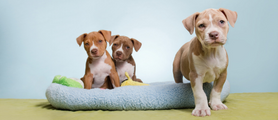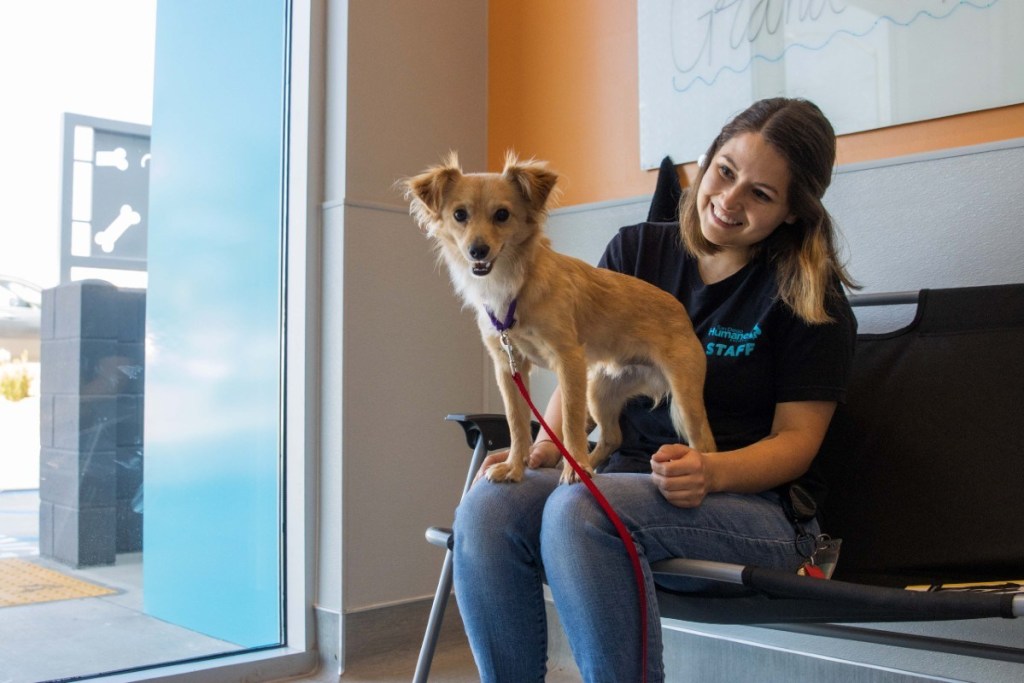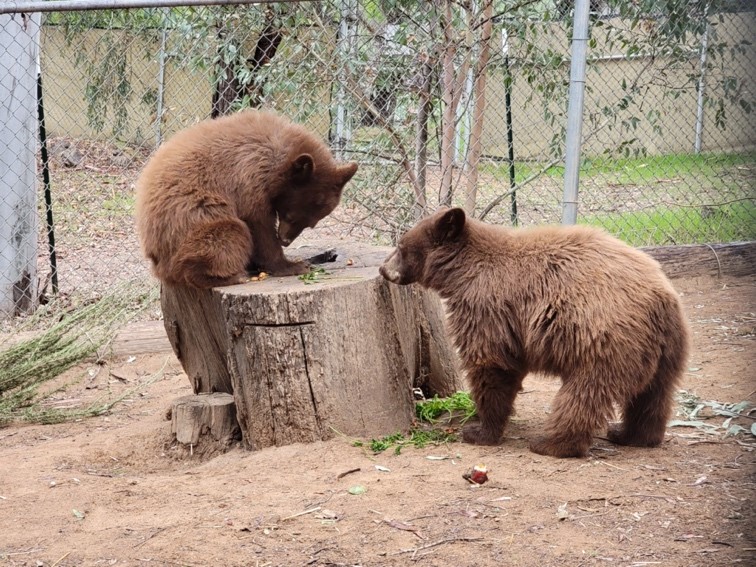Rabbit Care

BACKGROUND
WEIGHT: 2 to 20+ pounds, depending on breed
LIFESPAN: 7-10+ years
FUN FACT: Rabbits can be trained to use a litter box, come when called, and even run agility courses!
Please check out San Diego House Rabbit Society for more information and resources on rabbits: sandiegorabbits.org
FOOD
- Unlimited grass hay and fresh, clean water should be available to your pet at all times.
- ¼ cup of timothy hay-based pellets per 5 pound rabbit daily. Avoid pellets mixed with colorful treats. • Alfalfa hay and pellets may be given to young rabbits.
- Offer two cups of fresh leafy vegetables daily and limited fruit/treats.
- Avoid: Iceberg lettuce, potatoes, cabbage and broccoli.
HOUSING & ENVIRONMENT
- An indoor 4ft. by 4 ft. exercise pen is recommended. Most cages and hutches sold in pet stores do not meet the recommended size.
- Provide a litter box lined with paper-based bedding and place the rabbit’s hay in and above the litter box (rabbits will poop where they eat).
- Line the bottom of the pen with carpet squares or rugs for traction and tiles for cooling.
- Clean the litter box and pen area daily.
- Keep the pen indoors, away from drafts, extreme temperatures, and predators.
- Provide a cardboard box or other hiding cave and a soft bed.
- Your rabbit will need daily supervised exercise time outside of their pen.
- Rabbits should not be housed with other rabbits unless they are spayed/neutered and carefully introduced.
- Provide safe toys to help wear down teeth, which are continuously growing, including cardboard tubes and untreated wood blocks.
BEHAVIOR & HANDLING
- Rabbits generally do not enjoy being held, so only pick up your rabbit when it is necessary, making sure to support their hind end so that they don’t kick out and injure themselves.
- “Bunny proof” your home and provide supervised exercise time to prevent rabbits from chewing on furniture and electrical cords.
- Just like dogs and cats, rabbits show how they are feeling with their body language. Do not a approach or try to touch a rabbit that is lunging, thumping or grunting. A happy rabbit will jump and twist into the air- this is called binkying!
SIGNS OF ILLNESS
- Bring your rabbit to a small pet/exotics veterinarian annually for check-ups. If your rabbit stops eating or moving their bowels for 6 hours or longer, seek veterinary help immediately. Other signs of illness include hair loss, lethargy, head tilt, dental issues and diarrhea.
RABBIT SUPPLY CHECKLIST
- Spacious cage or exercise pen
- Grass hay (timothy, orchard grass, oat hay, brome)
- Timothy- based pellets
- Carpet squares
- Tiles
- Soft bedding
- Litter box and paper-based litter bedding
- Heavy ceramic dishes for food and water
- Nail clippers (trim your rabbit’s nails every 4-6 weeks)
- Untreated wood or cardboard toys
- Fresh leafy vegetables (romaine lettuce, radicchio, cilantro, parsley, carrot tops)
Published: October 19, 2019








